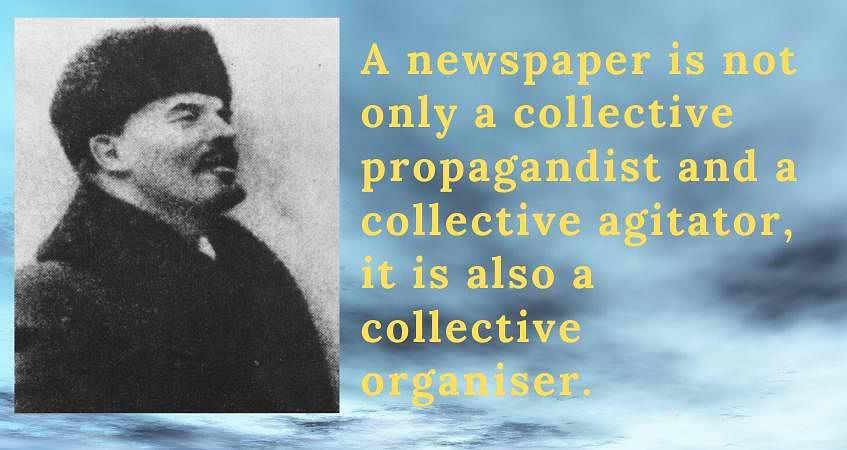Waweru In the coming months, Kenyan voters will head to the ballot boxes to vote for candidates of their choice. This is a ritual that Kenyans are used to, every five years. Since independence, the country has conducted numerous elections but, as in other capitalists’ countries, these elections have always been dominated by the capitalists who happen to control the state. The majority of people have been influenced by ruling class propaganda into believing that voting either of the ruling class candidates will better their lives. This scenario has made people find themselves choosing the candidates of the oppressing class, as Karl Marx said, to repress them: ‘The oppressed are allowed once every few years to decide which particular representatives of the oppressing class are to represent and repress them’. Many on the Left, due to opportunism or lack of ideological clarity, find themselves joining the bandwagon and come up with all manner of justification for participating in bourgeoisie elections. A majority of them theorising and quote great revolutionaries like Lenin out of context. Theory is meaningless without practice. And though the Kenyan Left is perhaps strong in theory, it is weak in practice and criticism. Without these, there can be no socialism. These leftist intellectuals and pseudo socialists are in effect champions of capitalism and make it easy for the ruling class to discredit socialism. It is against this background that we dedicate this issue to elections in Kenya.
This issue has four papers that were presented during an ideological seminar on bourgeois elections held at the Kenya National Theatre on 28th July 2021. The seminar was organized by Ukombozi Library, Revolutionary Socialist League (RSL), Women in Social Justice Centers, All African People’s Revolutionary Party, Vita Books and the Communist Party of Kenya (CPK). The seminar discussed the role and position of the left in bourgeois elections in Kenya. Some argued that there is a need for the Left to participate in the elections while others argued that based on the real situation, it would be unwise for the Left to participate. It was however noted that the Left is not always against participating in bourgeois elections but the participation has to be guided by concrete conditions of the situation. There are situations where elections can betray the working-class cause and others when it can ripen the revolutionary conditions.
The first article is by Ezra Otieno who argues that any leftist party which wants to participate in elections should be driven by the ideological leanings of the masses. He says that since the majority of people are still not ideologically clear and class-conscious, the duty of the left is to conduct political education with as many people as possible until such time as when subjective and objective conditions are realized. He argues that participation in elections without factoring in these points will be an act of opportunism.
Sobukwe Shukura, a member of the All-African People’s Revolutionary Party (AAPRP), argued that the left should use elections as a tactic and a means in a strategical process toward getting power. He gives a brief history of USA elections to show how sometimes it is challenging for a Left party to make an impact in a bourgeois election. He argues that Left parties, as well as individuals, should use elections as a tool to advance people’s democracy, not only at elections but at other times too.
Kimani Waweru shows how elections since flag independence in Kenya have been dominated by the rich, making it hard for ordinary citizens to win any elections unless they align with the rich. He argues that the left parties need to hasten the revolutionary moment when it will be easy for the masses to turn against the pro-imperialist parties and embrace progressive political parties.
Zarina Patel and Zahid Rajan, in a joint article, counter the argument by some left parties to justify their participation in elections. They argue that the Kenya Left has no mass base it can rely on. The Kenya Parliament, they argue, is reactionary as seen in how it votes on crucial bills, among them the two third gender rule. They emphasise that the solution lies in studying theory and adapting it to the sociopolitico-economic realities. By doing so, the Left would be in a better position to devise new methods of struggle to break through the exploitative system that Kenyans live under.
Kinuthia Ndungu, a Community Organizer and a member of the Communist Party of Kenya (CPK), argues that left parties and individuals in Kenya need to participate in elections. He argues that elections should be used as temporary vehicle to reach the masses and not a substitute for building a revolutionary vanguard. It is because of this reason, he explained, that the CPK will field candidates in the 2022 General Elections. If elected, the Party members will work towards instituting many progressive reforms within the current capitalist system so as to improve the welfare of the exploited and oppressed people. However, the Party will continue to advance the class struggle led by workers and their allies.
David Bii in his article on education shows how socialism has remained relevant even with all the attacks from the ruling class. He argues that there is need to empower the masses via political education in an effort to counter ruling class misinformation about socialism.
Lastly, we present Part 2 of ‘Kenya: Repression and Resistance from Colony to Neo-colony 1948–1990’ which was first published in the issue No. 3 of TKS (2021) Part 2 carries selected documents, photos and illustrations of resistance.



